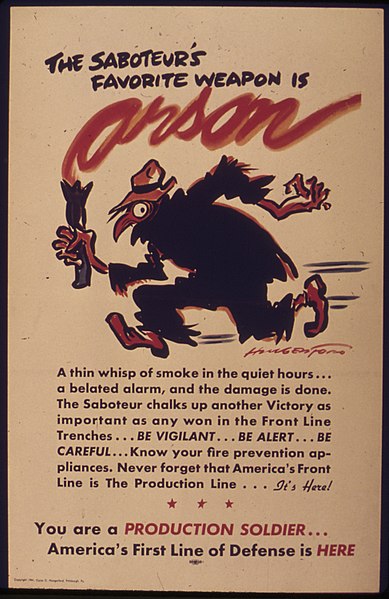

THE long tradition of Alice bashing is older than 3 years. A cult of patent maximalism, i.e. those people who believe that anything on Earth (even thoughts!) should be patented, would even make card decks to that effect (Patently-O actually promoted these last week). For those to whom patents rather than actual work/code/devices are "property" it may make perfect sense (they keep telling each other that patents are the equivalent of innovation), but for those of us who code it's a major headache and a never-ending struggle (to keep these zealots at bay). They keep bullying any public official who tries to explain that patent trolls have no value to the economy and patents on software aren't desirable or wanted by actual software professionals.
"They keep bullying any public official who tries to explain that patent trolls have no value to the economy and patents on software aren't desirable or wanted by actual software professionals."Will this dispute ever end? It can, but only if those patent maximalists go out of business. It's unlikely that coders will completely go out of business, even though Microsoft's patent troll Nathan Myhrvold once said: "Intellectual property is the next software."
As if patents can magically replace actual code and coders.
The eternal push by patent maximalists comes from various Web sites, none of which are composed by software developers. For them to tell software developers what software developers want or need is as ludicrous as it gets. They probably don't realise how ludicrous it looks to outsiders, either.
"For them to tell software developers what software developers want or need is as ludicrous as it gets."Here is a new example from Patently-O. Why was such a patent granted by the USPTO in the first place? Why aren't examiners (or their bosses) realising the dire effect of granting bogus patents? Innocent people are harmed and only the lawyers benefit.
Here is another news item from several days ago -- one which mentioned software patents. How did a graduate in the area of physics come to this? To quote: "IP boutique Meunier Carlin & Curfman has added two patent lawyers from a pair of big firms in town. Chris Glass, who was at Troutman Sanders, joins as of counsel, and Jason Huff joins as an associate from Kilpatrick Townsend & Stockton. [...] Glass, who has an undergraduate degree in physics, handles patent prosecution and litigation, mostly for electronics, optics (which includes fiberoptics communications), medical device and software patents."
"Don't they realise that software patents are passé?"For a physical device, where the invention is demonstrable not on a general-purpose device (e.g. programmable), patents can be fine. But why software? Moreover, what about Alice? Don't they realise that software patents are passé?
Even the "national law review" (a widely read journal, especially among legal professionals) is coming to grips with death of software patents. Days ago it published this article titled "Patentability Post-Alice: Cracking The Code" and it's about the 2014 ruling (along with its implications). To quote: "Another digital data conversion patent bites the Alice dust. Frankly, this is no longer a shock. Since the controversial and confusing Alice Corp. v. CLS Bank International opinion was issued in 2014, courts have been striking software patents left and right. The latest Alice victim, an image-processing patent holder battling Nintendo, has commentators calling rulings like this a threat to software patents worldwide. When it comes to getting through the patent-worthy Alice gate, have you cracked the code?"
Software patents are not worth much in the US. They might even be completely worthless. Software patents are gradually ending in the US and it's a good thing, albeit a shame it didn't happen earlier. The latest pro-Alice article of the EFF (part of a series) was published very recently to say "Alice Arrives Too Late to Save A Startup" (Ordrx).
Here is the gist of it:
David Bloom’s startup got off to a good start. He left a “regular job” to found Ordrx, a software company that created ecommerce solutions for local businesses. He secured venture funding and the company was featured in featured in TechCrunch and Inc. Magazine. But then he ran into a patent troll.
Our Saved By Alice posts have told the stories of companies who were helped or saved by the Supreme Court’s ruling in Alice v. CLS Bank that an abstract idea does not become eligible for a patent simply by being implemented on generic computers. Unfortunately, David’s story does not really belong in this series. This is because Ordrx was completely wiped out by the massive expense of defending itself in patent litigation. Later, the Federal Circuit would find the troll’s patents invalid under Alice. But that ruling came too late to save Ordrx.
"It would be nice to see the patent micorocosm leaving Alice in tact and in peace, but there are several simultaneous efforts to water down Section 101, in effect derailing Alice (i.e. disrepsecting a Supreme Court's decision)."Benjamin Henrion responded with: "Why does the state needs to intervene in software development? Sounds like an elephant in porcelain shop."
Copyrights do not require enforcement unless an infringement is said to have occurred (usually plagiarism or licence violations). Rarely does that require lawyers and attorneys.
It would be nice to see the patent micorocosm leaving Alice in tact and in peace, but there are several simultaneous efforts to water down Section 101, in effect derailing Alice (i.e. disrepsecting a Supreme Court's decision). We are watching these things closely. Attacks on PTAB will be covered in the next post. ⬆